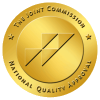Avoiding relapse is the greatest challenge that your teen will face after graduating from rehab. Completing an addiction treatment program doesn’t mean that the graduate is free from the influence of drugs, alcohol or addictive behaviors. In fact, statistics indicate that relapse is to be expected among teens who finish rehab. The National Institute on Drug Abuse reports that the relapse rate among addicts and alcoholics is 40 to 60 percent. Like other chronic diseases, addiction is a condition that will probably require lifelong management if your teen is to stay sober.
Addiction treatment programs for teens give them the tools they need to build a strong foundation for sobriety, so they can avoid relapse or diminish the effects of a slip. Teens must learn how to recognize the social cues and emotional stressors that drive them to drink or use, and how to respond to these cues effectively. They must learn the importance of turning to supportive friends, family members, peers, or counselors when they’re faced with stress or temptation. Most importantly, they must find satisfying, fulfilling sober activities that will help them build self-esteem and give their lives meaning.
Dealing With Triggers
In drug rehab, individual counseling sessions and group meetings often focus on how to identify substance abuse triggers. A “trigger” is any event, person, place, memory or emotional response that makes you want to reach for your drug of choice. Passing by a friend’s house where you used to use drugs, meeting an old girlfriend or having a fight with your parents can make you feel overwhelmed with cravings. How do you handle these events or experiences without relapsing? Here are a few common coping strategies:
- Avoid high-risk scenarios. Sometimes the best way to avoid a relapse is to stay away from the places, people or events that you associate with substance abuse. For teens, this may mean enrolling in a sober high school, finding new extracurricular activities or living in a sober home.
- Find new friends and activities. Support groups for teens offer a positive peer environment, where young people are respected for their decision to stay sober. Look for opportunities in your community to participate in active teen groups that celebrate the commitment to abstinence.
- Practice stress management techniques. Deep breathing, counting to 10, taking a walk or participating in a sport are some of the strategies that can help you handle your triggers. Some of these techniques may come to you naturally; others have to be learned from counselors or friends.
- Rely on group meetings. Twelve-step meetings and other community support groups are great places to go when you’re faced with a long, boring afternoon at home, or you’re upset over a fight with your best friend. At a group meeting, you can learn from the experiences of others, renew your commitment to sobriety and even laugh at some of the situations that we take so seriously.
Creating a Drug-Free Environment
Teens with a high risk of relapse can benefit from a transitional period between rehab and re-entry into the “real” world. Sober living residences give adolescents more time to practice their stress management techniques and coping skills before they return home to live with their parents or go back to school. These homes may be affiliated with addiction treatment centers or operated independently by private owners.
Because strict rules are enforced to maintain a drug-free environment, teens don’t have to struggle as hard to avoid high-risk situations. In a sober living home, they can continue to benefit from the presence of supportive peers and therapists until they’re ready to live in the community again.
For teens who have had trouble at school, sober high schools offer an alternative to traditional education. Teens with behavioral disorders or learning disabilities can benefit from the small class sizes and individualized attention that they can receive at a sober high school. Many of these educational programs are open to fewer than 12 students, which means that each teen can learn at his own pace. Some sober schools offer a diploma option or a GED, so students can stay with the program until they graduate and move on to college or jobs.
Relapse is common among rehab graduates, but it isn’t inevitable. If your teen does go back to drinking or using, the severity of the relapse can be minimized if you intervene quickly to get him back on track. The most important resource at your disposal is the support of caring, professional addiction specialists. If you have questions about relapse or recovery, our experts here at Muir Wood are ready with answers and referrals. Call our central number for information today.


